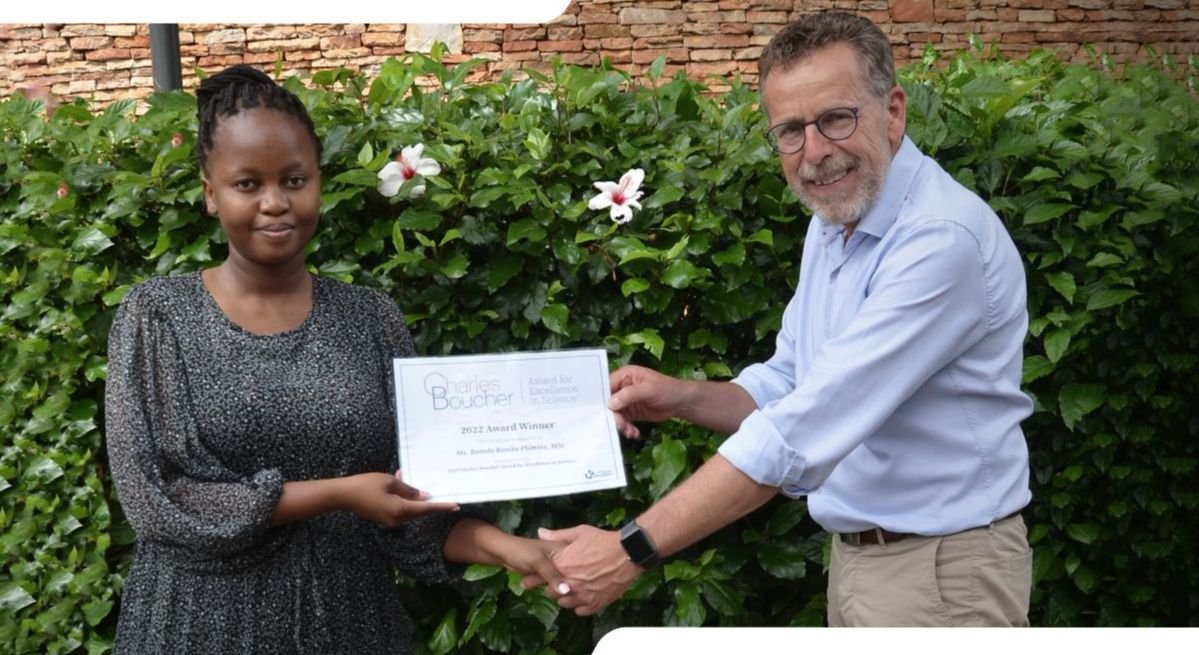 Apart from producing cutting edge scientific discoveries, Botswana Harvard AIDS Institute Partnership (BHP) is also bullish in unearthing and nurturing talent through its capacity building and training programmes. The BHP Capacity Building and Training initiative seeks to build a pool of young career researchers who are innovative and determined to develop game-changing scientific solutions to public health challenges.
Apart from producing cutting edge scientific discoveries, Botswana Harvard AIDS Institute Partnership (BHP) is also bullish in unearthing and nurturing talent through its capacity building and training programmes. The BHP Capacity Building and Training initiative seeks to build a pool of young career researchers who are innovative and determined to develop game-changing scientific solutions to public health challenges.
Bonolo Bonita Phinius from Bobonong, a Research Fellow at BHP and a PhD candidate with University of Botswana is a shining example that BHP produces highly adept researchers and scientists that are globally competitive.
Phinius is the winner of the inaugural 2022 Charles Boucher Award for Excellence in Science, an award that was competed for globally. The Prof. Boucher (1958 – 2021) Award was established to recognize early-career scientists by facilitating mentorship by experts in their field of interest, to obtain a particular new skillset for their research or afford them opportunity for interaction and presentation of their work at an international stage.
“Prof. Charles Boucher was a leader of high repute in virology research who was passionate about capacitating early career scientists. To be the first recipient of this award in his tribute is an honour. This award recognizes individuals who are active researchers and who have contributed knowledge in the field of HIV, hepatitis and COVID-19,” says Phinius.
She adds, “to me it solidifies that indeed the work I have been doing is of good quality and is indeed impactful, and it speaks to the efforts of BHP in capacitating young scientists to do such impactful work.”
Growing up as an aspiring scientist, she wanted to contribute to the health of the people, only she did not know how, but through research, she has found the key. She now investigates the burden of diseases such as hepatitis and their progression and she hopes that the scientific data that she generates shall influence health policies in can be applied to understanding future pandemics.
“I will apply the skills in my PhD work and impart the knowledge to colleagues here at BHP and other institutions. I will also impart these skills to the students I am mentoring,” she adds.
Phinius obtained her BSc Biological Sciences degree from the University of Botswana in 2015 and volunteered briefly at the Botswana Vaccine Institute. She joined BHP as an intern in 2016 where she continues to train. To show her competitive streak, she applied for the highly competitive Chevening Scholarship which she was awarded in 2018 to pursue an MSc in Medical Biosciences at the University of Bradford (UK).
“Upon completion I returned to BHP to continue researchonviralhepatitisandset-upcapacityforSARS- CoV-2 testing at the start of the pandemic. Through support from my supervisors here at BHP, I registered for a PhD in Medical Sciences with the University of Botswana in 2021 and I am currently working on my studies among other responsibilities,” said Phinius.
Phinius works closely with undergraduate students and interns training them in various laboratory skills and other soft skills. She is also part of the BHP Viral Hepatitis Research Group that raises awareness on hepatitis viruses through research and engagements.
“BHP is a research, training and capacity building institution and through it I have been mentored throughout my time here. I therefore, as part of this culture also contribute to this mandate through training and mentoring undergraduate students from various universities, both locally and internationally,” she said.
Her mentorship involves helping them develop their final year research projects, reviewing their research project proposals, and giving feedback, encouraging assertiveness and confidence in their work, sharing opportunities for advancing their education such as scholarships and guiding them through those processes.
Bonolo’s PhD project is on the prevalence of Chronic and occult hepatitis B virus (HBV) infection
among people living with HIV in rural and peri-urban communities in Botswana. This project includes investigating the burden of the virus in 30 communities and tracking HBV variants that are circulating in these communities to better understand how patients can be managed.
Bonolo presented an abstract on her project at the 8th Botswana International HIV Conference held in Gaborone from 8-11 November 2022 where she received the Best Emerging Researcher Award. The award further buttresses her winning element and strengthens her confidence to continue working hard to save lives through research.
“This is the largest HBV study to be conducted in Botswana and will bring awareness to the public in different parts of Botswana about HBV. Results from this study will also inform the Ministry of Health on areas that are highly affected to encourage targeted interventions and formulation of evidence-based policies from data specific to Batswana,” she said.
Phinius encourages other young researchers and enthusiasts to be persistent in their pursuit to achieve their goals. She urges them to identify mentors and embrace mentorship, citing that mentorship has greatly impacted on her career. She advises all young people not be afraid to approach people who will guide them throughout their studies and careers in any field.




